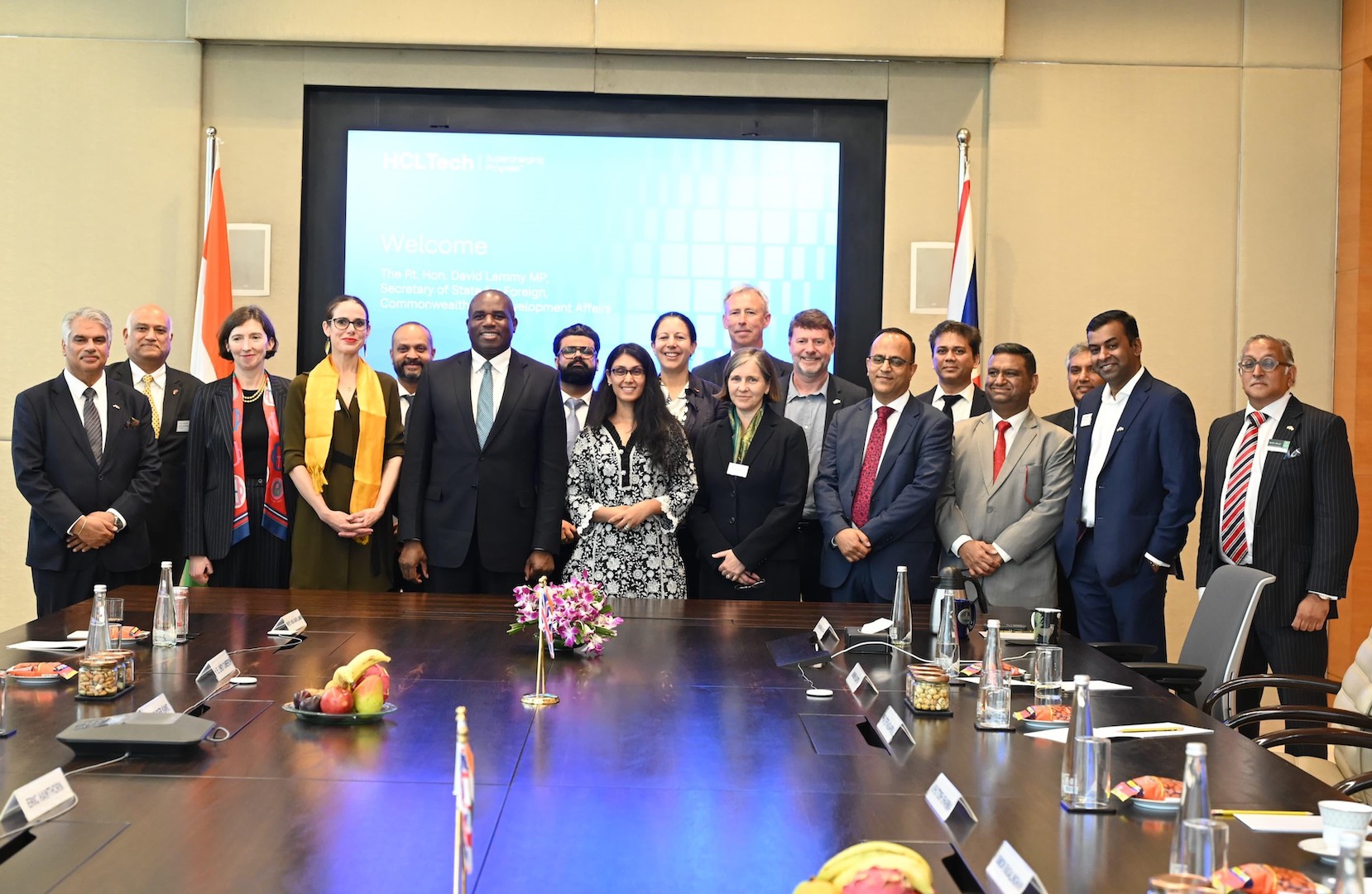
Last week, Carbon Re was invited as one of just 10 UK tech businesses to accompany the Foreign Secretary, the Rt Hon David Lammy, on his first trade delegation to India, just three weeks after the Labour government assumed power in the UK. It was an immense privilege for Carbon Re to be represented as a part of this delegation particularly given India’s standing as a global leader in digital technologies.
India’s economy is growing at breakneck speed: anticipated to rise from $3.7 trillion in 2023 to $7 trillion by 2030, it is soon to be the third largest in the world. In recognition of this, the UK government is prioritising building a progressive UK-India partnership by deepening cooperation in areas like security, education, technology, and climate change – aiming to secure a trade deal which would “be the floor and not the ceiling” to Britain’s ambitions.
Our whirlwind 24 hour visit took place in New Delhi where our delegation met with senior business leaders and representatives from India’s burgeoning technology industry during a series of roundtable meetings, technology showcases and presentations at the international headquarters of India’s third largest technology company, HCLTech which has invested approximately £270m into the UK since 2019), NASSCOM and Invest India.
In a meeting with senior Indian government officials, including Prime Minister Narendra Modi and and the External Affairs Minister S. Jaishanka to discuss and deepen the UK-India partnership on climate, including to mobilise finance and unlock new clean growth opportunities David Lammy referred to the importance of “climate action while creating opportunities for British and Indian businesses”.
Significantly for us, India is the second-largest cement market globally, with an annual production around 44 times larger than the UK’s, offering a rich landscape of opportunities for Carbon Re to expand our business in the region. Major players like UltraTech Cement, Shree Cement, and JSW Cement dominate the market, with UltraTech accounting for 31% of the market share.
While our official duties ended with a reception hosted by His Majesty’s Trade Commissioner, Harjinder Kang, at the Residence at the British High Commission in India where the Foreign Secretary announced the launch of the UK-India Technology Security Initiative, the visit has provided a tremendous opportunity for Carbon Re, opening up significant possibilities for large-scale decarbonisation with our technology in India.
Currently, India has an installed cement production capacity of approximately 570 million tonnes annually, with expectations to grow to 715-725 million tonnes per year by the end of the 2027 financial year. This growth is driven by rapid urbanisation and extensive infrastructure and residential projects, as highlighted in July’s budget announcements presented to the delegation by Invest India representatives.
Reducing emissions in India’s cement sector will involve promoting the use of alternative fuels, decreasing the clinker content in cement, and enhancing energy efficiency. Carbon Re can achieve up to a 5% reduction in fuel costs and fuel-derived emissions from cement production, which accounts for 8% of global greenhouse gas emissions. This means that every new plant using this technology saves the equivalent of 2000 passenger flights in emissions.


